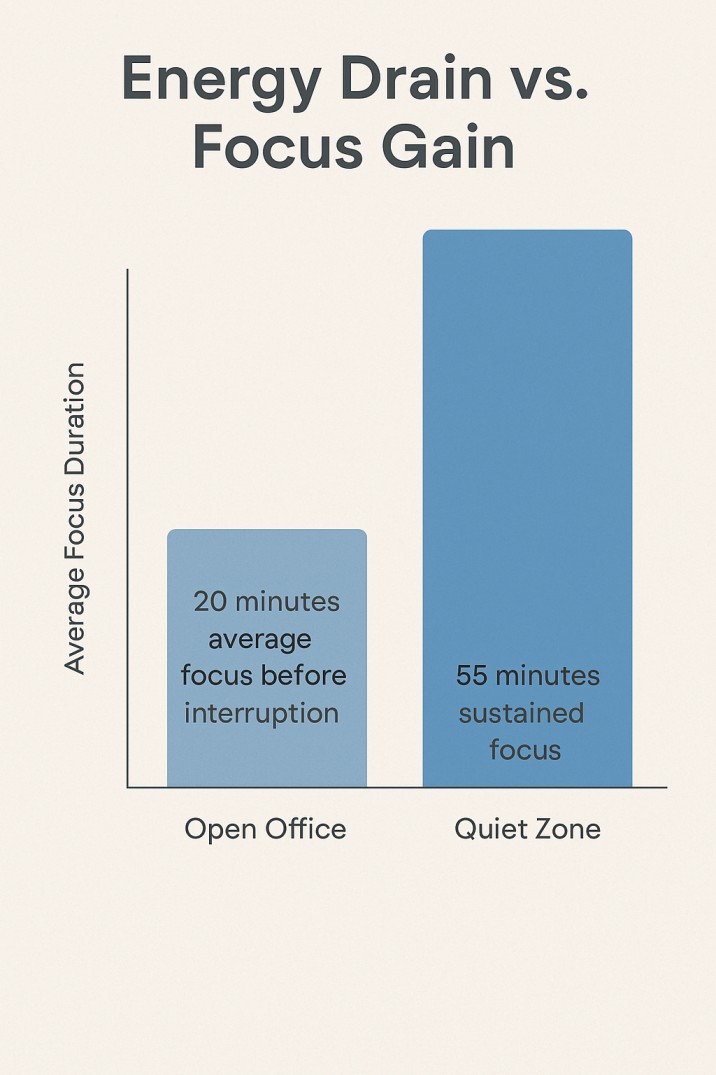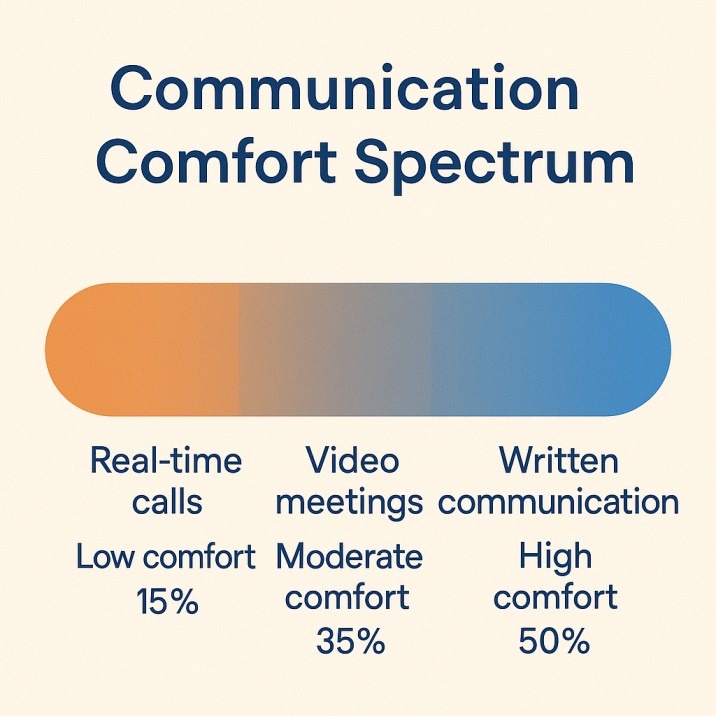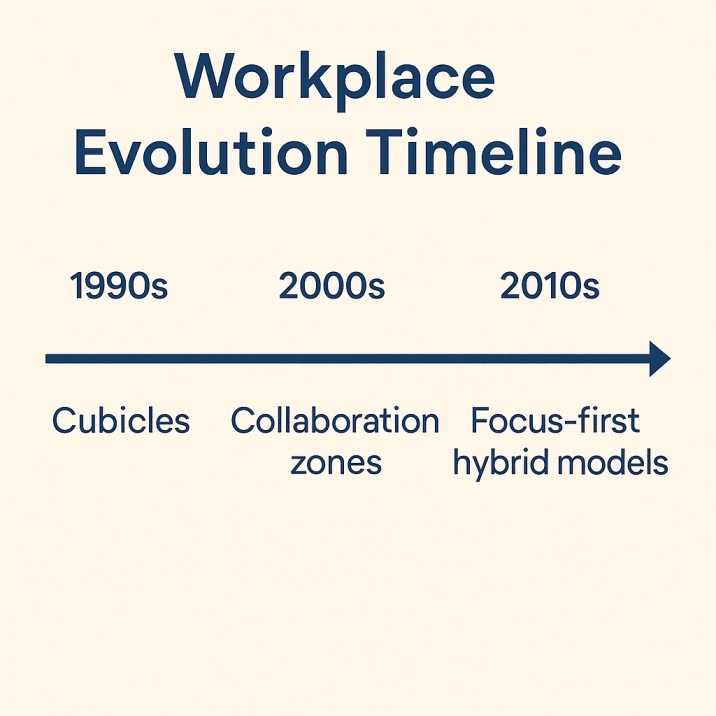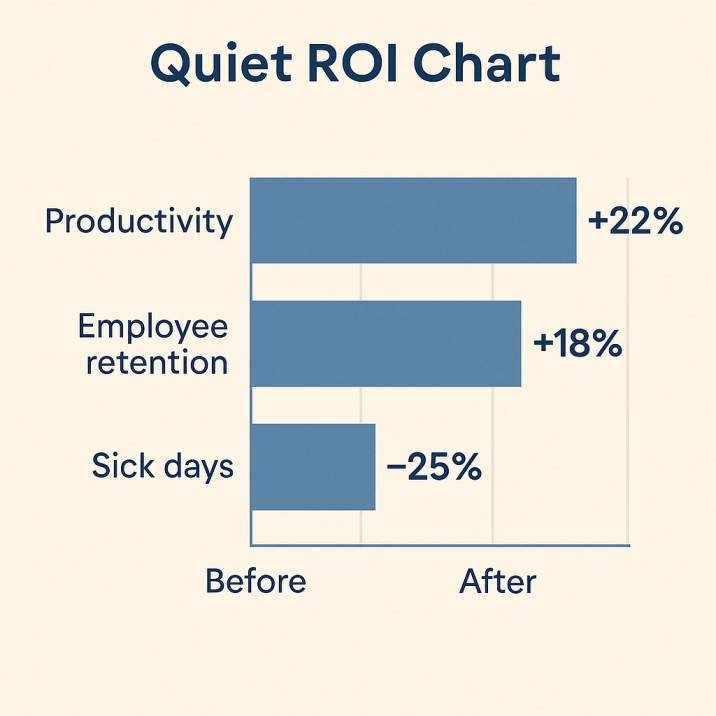The modern workplace is louder than ever—open offices, endless notifications, and an expectation to “speak up” that can feel exhausting for those who recharge in silence. For many introverts and people managing social anxiety, the idea of a peaceful workday isn’t just a preference; it’s a necessity for focus and mental well-being. Exploring jobs for people with social anxiety isn’t about avoidance—it’s about alignment. It’s about finding roles where calm is a productivity booster, not a career limiter.
Jobs for people with social anxiety create peaceful, structured environments where focus replaces pressure. These roles support calm, independent work while reducing overstimulation. Remote and quiet office positions empower introverts to perform deeply without forced interaction, proving that thoughtful solitude can drive creativity, efficiency, and long-term professional satisfaction.
Understanding the Quiet Advantage
Quiet doesn’t mean withdrawn, and solitude doesn’t equal weakness. Some of the most effective professionals in fields like design, analysis, and writing build their success on reflection rather than reaction. These environments often allow deep concentration, where thoughts have the time to evolve instead of being interrupted. The truth is that jobs for people with social anxiety tend to share one key trait: psychological safety. When workspaces respect personal boundaries and offer low-pressure collaboration, productivity rises naturally.

The Science Behind Calm Workspaces
Neuroscientists studying introversion have found that introverts display higher cortical arousal. This means their brains are already alert and don’t require extra stimulation to stay engaged. In contrast, constant noise or chatter can overload that system, leading to burnout or emotional exhaustion. Similarly, those with social anxiety experience a physiological response—elevated heart rate, shallow breathing, cognitive tension—when social pressure builds. That’s why jobs for people with social anxiety that provide structure, autonomy, and predictable interactions reduce overall stress and enhance performance quality.
A controlled environment gives the mind space to reset between tasks. For instance, data analysts, technical writers, accountants, or archivists often describe a “flow state” that feels like meditation through work. The quiet itself becomes a performance enhancer.
Emotional Architecture of a Safe Workplace
Beyond sound levels, the emotional climate of a workplace defines how sustainable it is for anxious or introverted minds. A calm workday isn’t simply about silence; it’s about predictability. Meetings have agendas, communication happens asynchronously, and colleagues respect personal rhythms. Jobs for people with social anxiety that value asynchronous communication—like email or project management tools—reduce the fear of instant response and allow time to compose clear thoughts.
This “emotional architecture” matters. When people aren’t forced to perform socially on command, they perform intellectually instead. For introverts, this autonomy often unlocks creativity and insight. In environments like research labs, libraries, design studios, or remote tech teams, individuals are celebrated for depth, not decibels.

The Rise of Remote Serenity
The digital shift toward remote work has been revolutionary for mental wellness. Home offices became sanctuaries where performance didn’t rely on extroverted energy. For many, this shift finally created jobs for people with social anxiety that are not only viable but empowering. The camera can stay off, communication can happen via thoughtful writing, and the person’s value is tied to output rather than visibility.
Yet, even within offices, hybrid models are evolving. Companies are beginning to recognize that quiet does not mean disengaged—it means deliberate. Spaces designed for focus—small pods, acoustic booths, or low-light rooms—are becoming part of architectural planning. A quiet office is no longer a luxury; it’s an inclusion measure.

Personality Fit and Role Alignment
Personality psychology sheds light on why certain job environments feel like home while others feel like battlefields. The “Big Five” traits—particularly introversion and neuroticism—interact with workplace structure. High introversion with high conscientiousness often predicts success in solitary roles requiring meticulous attention. That’s why jobs for people with social anxiety frequently align with technical, analytical, or creative tasks where depth matters more than dialogue.
Writers, editors, coders, financial analysts, or archivists can transform their natural introspection into superpowers. Their internal world becomes a workspace rich with clarity and innovation. The key is designing boundaries: limited spontaneous meetings, predictable routines, and defined responsibilities that reduce anxiety triggers.
The Hidden Economics of Quiet Efficiency
Quiet doesn’t just feel better—it performs better. Studies show that employees who experience fewer interruptions save up to 3–4 hours weekly in regained focus. For companies, this translates to thousands of productive hours annually. The economic case for calm is growing louder than the noise it replaces. Employers who design environments where jobs for people with social anxiety can flourish often see lower turnover rates, reduced absenteeism, and better quality control.
That’s because anxiety isn’t inefficiency—it’s sensitivity to overstimulation. When environments adapt, the same sensitivity becomes intuition. An anxious analyst may notice subtle trends others miss. An introverted designer may craft more empathetic interfaces. What once felt like a limitation transforms into an asset when matched with the right context.

Emotional Safety and Long-Term Growth
Finding jobs for people with social anxiety is not just a temporary fix—it’s part of building a sustainable mental ecosystem. When employees no longer fear judgment or forced participation, they start contributing original ideas. Safe environments allow gradual exposure rather than forced extroversion. Over time, this nurtures self-confidence rather than masking fear.
Managers who understand this dynamic play a pivotal role. Offering flexible communication, respecting silence as thinking time, and setting clear expectations remove ambiguity—the biggest trigger for anxious minds. In this framework, introversion and anxiety stop being liabilities; they become signals for thoughtful management.
The Future Belongs to the Focused
In the evolving landscape of knowledge work, attention is the rarest currency. The individuals who can stay centered amid distraction will lead the next creative wave. For introverts and people with social anxiety, this is not an obstacle—it’s a competitive advantage. The ability to work deeply, quietly, and independently defines the future of excellence.
As companies design policies that respect individual temperament—flexible hours, asynchronous workflows, acoustically balanced spaces—they aren’t catering to fragility. They’re investing in sustained brilliance. The quiet office is more than a physical space; it’s a philosophy that recognizes productivity as peace, not pressure.
So, the search for jobs for people with social anxiety is more than job hunting—it’s self-alignment. It’s about finding environments that don’t drain, but restore; roles that don’t demand constant visibility, but celebrate consistent value. In the quiet, there is not isolation but resonance—a frequency where focused minds finally feel at home.
Andrea Balint is a writer and researcher focused on human behavior, workplace psychology, and personal growth. Through her work at CareersMomentum, she explores how mindset, leadership, and emotional intelligence shape modern careers. With a background in communication and HR development, she transforms complex ideas into practical insights that help readers build clarity, confidence, and professional purpose.
